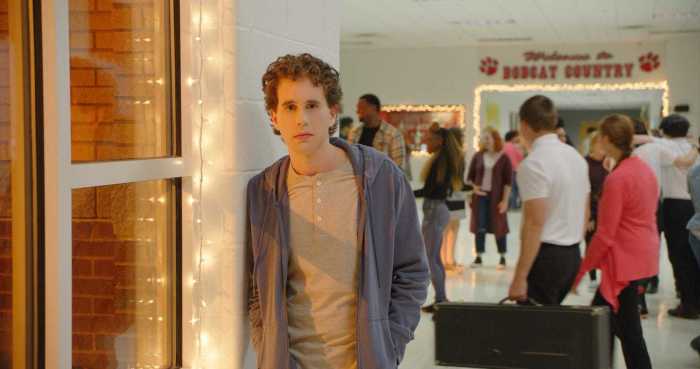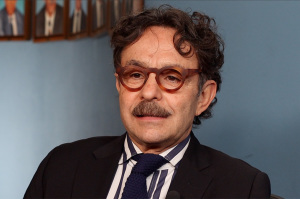'Dear Evan Hansen' director on how Mr. Rogers, faith help him create films that 'make a difference'

Growing up in Pittsburg, Pennsylvania, Stephen Chobsky’s biggest hero was Mr. Rogers.
“I thought about the fundamentals of his teaching and his art, to look at every person, regardless of their age, their gender, their color, whatever it is — none of it mattered, in terms of everyone deserves to be looked in the eye and respected for where they are and who they are and where they live,” the 51-year-old director told The Christian Post.
Raised in a devout Catholic home, Chobsky said it was the values promoted by Mr. Rogers, his church and his parents that have influenced his work, from his 2012 film “The Perks of Being a Wallflower” and 2017’s “Wonder” to his latest, “Dear Evan Hansen.”
“I'm really glad that I'm able to make something in the Hollywood system that has, I think, wonderful values,” he said.
Starring Ben Platt, Amy Adams and Julianne Moore and adapted from the Tony Award-winning Broadway musical, “Dear Evan Hansen” tells the story of Evan, a lonely, anxious teenager desperate for understanding and kindness. At the advice of his therapist, Evan writes himself motivational letters every day, reminding himself of the beauty of life.
One pivotal day, a troubled classmate, Connor (Colton Ryan), steals the letter and later dies by suicide. When Connor is found with a note addressed to Evan, Connor’s grieving family assumes that the two were friends. Although initially hesitant, Evan goes along with the lie to both comfort Connor’s parents and build a connection with Connor’s sister, Zoe (Dever).
But inevitably, Evan’s increasingly dramatic falsehoods get out of hand when they hit the internet, turning him into a local celebrity and complicating the lives of Connor’s family.
“Dear Evan Hansen” is not a faith-based film — it’s rated PG-13 for thematic material involving suicide, brief strong language and some suggestive references. The film contains mature themes, including suicide, anxiety and depression as well as references to homosexuality.
But it highlights the biblical themes of compassion, empathy and perseverance — and the universal human desire “to be fully known and truly loved.”
“I want [viewers] to feel seen and understood,” Chobsky said. He emphasized the relevance of the film’s message at a time when millions throughout the world have been isolated, exacerbating mental illness among many.
‘We have all been through a terrible time,” he noted. “And we're still in it. The devastation on young people — I've seen it firsthand. It's been it's been unbelievable. And so all that isolation, the extra depression and anxiety, the suicides — it's tragic what has happened.”
The complicated world of social media is a topic woven throughout the movie. Teens regularly communicate through digital platforms, characters are shown reacting emotionally to screens and finally, it’s an Instagram post that plays a role in exposing Evan’s deception.
For better or for worse, Chobsky said, Instagram, Facebook and TikTok are integral parts of teens’ lives. Without being “preachy,” he said, he wants to encourage young people to treat these platforms with care.
“[I wanted to] show that this type of fame is fleeting, to not measure your worth by likes, to concentrate on real-world friendships rather than friend requests,” he said. “There is a real world and flesh and blood relationships. Society should not keep dwindling so we can live online all the time. In many ways, as much as [social media] has brought people together, which is wonderful, it's torn people apart in so many ways.”
Though “Dear Evan Hansen” focuses largely on the lives of its teen subjects, it also examines the nature of grief, particularly that of Connor’s parents, who struggle to move forward with the tragic nature of their son’s death.
“We have a primal need to know and to believe that our children will be OK, and we will do anything to ensure their safety and support their growth,” he said. “I deeply related to these parents.”
Humanizing parental figures and giving them dignity, Chobsky said, was important to him. A father himself, he told CP it always “bothered” him that Hollywood treated parents as though they were “idiots,” “uncaring and unfeeling.”
“In so many teen movies, they are treated like this appendage,” he explained. “But I think back to my teenage years and my mom and dad were not idiots. And they were not clueless, and they loved me. I always had that as a fundamental cornerstone of my characters and my world philosophy.”
Already, Chobsky said he’s heard from numerous families how the film has helped them.
“We had a screening [in New York], and a lady came up to me in the lobby, I never met her. And she said that she lost her son to cancer two years ago. It was really amazing what she said — ‘this movie really helped me,’” he recalled, his voice catching.
Bringing the emotional, complicated world of Evan Hansen from Broadway to the big screen was a challenge, Chobsky said. But it was one he was willing to tackle in the hopes of making a positive difference in viewers’ lives.
“It feels very humbling, and it feels like an honor” to be a part of the film, Chobsky told CP.
“The most sacred thing that we can give other than our love is our labor. Whatever we do with our lives, whatever we do with our work, to take it very seriously, because it could have an impact,” he added.
“As a human being, I think, far more importantly, is just to know that ... you could walk into a movie, and two hours and eight minutes later, you could walk out and have and feel more hope or more possibility, or that maybe some of the dark times are in the rearview mirror instead of riding ahead. That's been incredibly gratifying. And it's why I do what I do.”
“Dear Evan Hansen” is rated PG-13 opens exclusively in theaters on Sept. 24.
Leah M. Klett is a reporter for The Christian Post. She can be reached at: leah.klett@christianpost.com





























